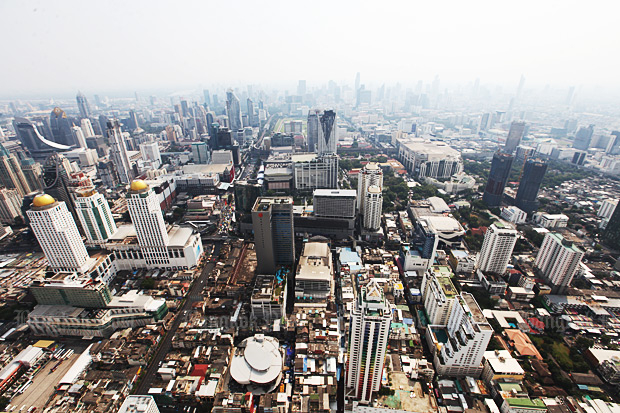
After 33 years in the global logistics industry, I continue to be amazed by how little globalised the world economy still is. Some may find this thesis disingenuous, given the fears often associated with globalisation. But at a time when populism and nationalism are ever more pervasive, while multilateralism is increasingly under threat, it matters greatly to have one's facts straight.
For example, just about 20% of world economic output is exported. Globally, investments made by companies buying, building, or expanding international operations account for less than 10% of total fixed capital formation.
Only 3% of people live outside the countries where they were born. And the total number of parcels shipped internationally equals just 1.3% of all parcels shipped domestically in countries around the world, according to the Universal Postal Union.
In addition, for all the talk about global supply chains, we should be aware that most of these supply chains are actually regional. That pattern is documented in the DHL Global Connectedness Index 2018, developed by scientists at NYU Stern and IESE Business School. In that sense, it is not so much globalisation per se, but the regionalisation of the world economy that underpins growth in many parts of the world.
Cross-border trade, whether regional or global in reach, advances economic prosperity. In that regard, the more than 4.5 billion people living in Asia will prove to be an unstoppable economic force.
Progress in successfully tapping into the world economy is increasingly achieved in some unexpected places. As highlighted in the DHL Global Connectedness Index 2018, Cambodia, Malaysia, Mozambique, Singapore and Vietnam are the top countries globally whose actual international flows are larger than predicted by such factors as size, wealth, language or proximity.
Notably, four of these five countries are located in Asia, one in Africa. This says a lot about the future dynamics of the global economy.
Even though there are significant tensions affecting the global trading system at this juncture, we should also feel encouraged by the conclusion of major trade agreements.
As the recent EU-Japan Free Trade Agreement underscores, such trade deals also provide room for economic growth in what used to be considered the "first world", largely by removing bureaucratic impediments to trade.
I can still remember a world where there was no online trade and when companies' sales representatives had to travel around the globe handing out their catalogues. After they returned home, they then hoped for orders by mail. All of that can now be achieved more or less by the click of a button.
Trade creates genuine participation in the global economy and can help countries to improve the skillsets of their population as well as the quality of their infrastructure. This is especially empowering for the ever more productive middle classes of emerging market countries. The times when overnight access to the flow of goods and services that make up the global economy were the exclusive privilege of the upper-most classes of these countries -- are gone.
In this context, it is of particular importance to note that e-commerce is by no means one-directional. Online shops facilitate trade and expand opportunities in all directions. This even applies to small-scale artisan producers in remote corners of the world. They can now connect to customers globally.
In this way, global trade helps draw countries together and allows their citizens to prosper. The global logistics industry is both a beneficiary of and a catalyst for that greater connectedness.
It is also true that, as a result of economic change, jobs are being lost in some sectors, countries and regions. At the same time, new jobs are being created in other industries, countries and regions.
Finally, we must not lose sight of the fact that, since 1990, globalisation has been a critical factor in reducing the number of people living in extreme poverty from 1.9 billion to 736 million.
Considering the significant increase in the world's population, this is an even more impressive achievement.
If we want to build on this success story, we should focus even more actively on eliminating remaining barriers to trade and access to information. In this way, we can also enable people living in far-away places to tap into global prosperity.
John Pearson is the CEO of DHL Express in Bonn, Germany.